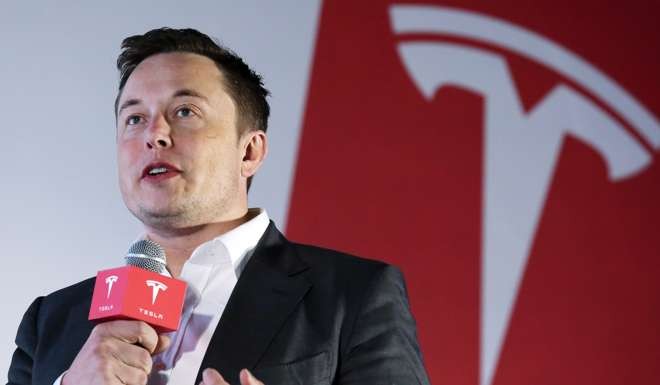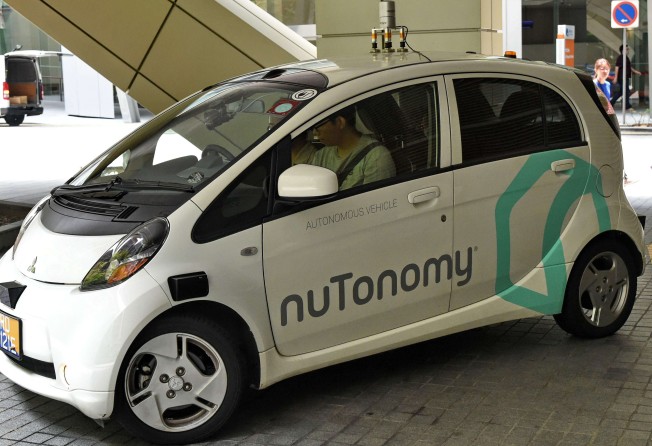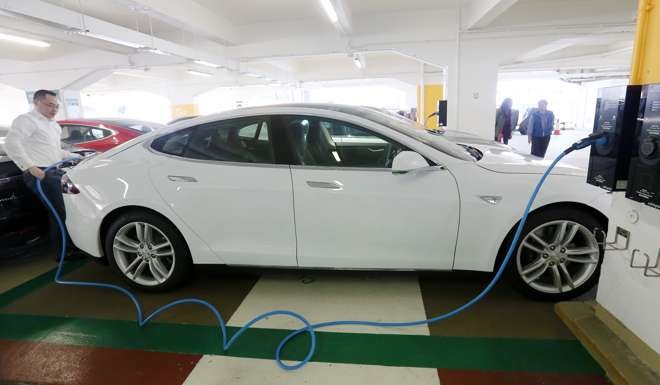
Autonomous cars: time for Hong Kong to get in the driver’s seat
The city is perfectly placed for adoption of driverless vehicle technology but has been slow to get on board

History repeats itself. In March this year and last, this column called for someone in authority, or money, to give leadership to an innovation that will revolutionise our lives.
The driverless car.
It used to be the joke a couple of decades ago that if you wanted to get anything done in Singapore, you only had to say that Hong Kong had done it first. Think MTR, air-conditioned bridges, the Octopus payment scheme. Now, regretfully, in Hong Kong we cannot even gird our loins when our sister port launches a good idea. For last week, Singapore launched the first electric driverless taxis; and what do we do? Hello…?
It took a private company, nuTonomy, to do it – but with Singapore government capital. The first stage comprises a fleet of trial taxis with prescribed routes and stops. A human will for the moment monitor the robo-taxi, just as pilots sit in the cockpit of an airliner to make the passengers feel better.
If you want to see how disruptive this is going to be, the arch-disrupter, Uber, is disrupting its own business by launching (again, last week) an autonomous taxi service in Pittsburgh, USA. Uber is partnering with Volvo – a Chinese-owned company.
To complete last week’s autonomous news, Ford announced that within five years it will produce a car with no steering wheel or pedals. General Motors is testing Chevrolet driverless taxis next year (how to destroy a brand), and Google’s well-publicised autonomous has done more than a million miles without a Lewis Hamilton wannabe.

Hong Kong is small, confined, easily mapped and rich … about the best place in the world to start driverless transport. We are already on our way to being the “leader of the world” in electric cars, according to the man who knows – Elon Musk, the founder of gizmo-packed Tesla cars.
Nearly 10 per cent of Tesla’s production was bought by Hongkongers last year, freely choosing, in a free market. They flocked to a clean electric car, perfect for Hong Kong’s steep hills and short distances. Electric cars are not driverless cars, of course, but they come from the same stable of innovation. If you are still not impressed with autonomous cars, take a look at Locky Law’s video on Tesla’s autopilot on this website.
The Hong Kong government has helped electric vehicle adoption by not levying the first registration tax, although it fails somewhat on the detail. Hong Kong has one of the lowest vehicle-to-charger ratios in the world, just two cars for every public charger, but they are usually blocked by an unticketed petrol car.
In Singapore, the government’s commitment has been critical to developing the market. In mainland China, Tesla has made little progress as the government protects its own electric vehicle industry – something to our advantage, as Hong Kong is better placed to use China’s advanced technology.
The Try Not To Have Any Transport Department took an age to approve Tesla’s autopilot well after it had been approved in the famously litigious US. They are repeating the mistakes of the Red Flag Law that 120 years ago required a man to walk in front of a horseless carriage in case it upset the livestock. History repeats itself. Driverless carriages are coming.
The sad thing is that we are in danger of having to buy expensive technology from Singapore instead of developing it ourselves. This is such a no-brainer that if an investor provides the seed funding (and a passport through the bureaucracy), I will manage it myself.

I will mostly be sad to lose Raymond, the man who has been diligently, driving my bus every day for the past 27 years. We have grown old together. When a computer can download his millimetric negotiation of a large vehicle down our narrow mountain roads and through the busy streets of Hong Kong, our lives will be changed. He deserves a good pay-off in his retirement.
Hong Kong is too small to ever be much good at innovation, but we can be very good at application – as Singapore has discovered. This is our chance to become a driverless centre of excellence. “Jia you” (which means “add oil” or “come on”). Perhaps we should be saying “Jia din, Heung Gong” (“add electric, Hong Kong”).
Richard Harris is the chief executive of Port Shelter Investment Management. www.portshelter.com